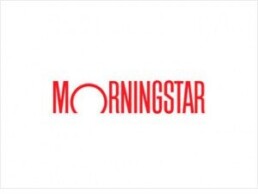The World In A Week - A week to remember
Written by Ilaria Massei.
Turmoil in the banking sector became the main focus over the last week, diverting attention from economic data releases for the first time in several months. A rapid outflow of customer deposits from Silicon Valley Bank (SVB) led to the biggest US bank failure since the global financial crisis. The Fed assured that all SVB depositors would have full access to funds on Monday morning and made additional funding available to banks to safeguard deposits and to address any potential liquidity pressures. This seemed to provide some confidence to markets that rebounded on Tuesday and coincided with the release of the annual inflation rate in the US which slowed to 6% in February from 6.4% in January.
However, on Wednesday, news broke that another banking giant, Credit Suisse, was experiencing problems and sent equity markets lower once again. In an environment, which is quite unlike 2008, where most European banks have strong capital cushions and are buying back stock, Credit Suisse was known to be more fragile. News that their core wealth management business was suffering major outflows led to a crisis of confidence and a rush of deposit withdrawals. The Swiss central bank stepped in with a £44bn credit line but the measure failed to stem the rush of withdrawals. Yesterday evening it was finally announced that UBS will take over the bank, trying to stop what could have triggered a global crisis of confidence in the banking sector.
Credit Suisse’s fall dragged down European Equities with the MSCI Europe Ex-UK and the FTSE All Share Index closing the week at -4.1% and -5.1% in GBP terms. On Thursday, the European Central Bank (ECB) raised interest rates by 0.50% to 3.0%, pressing ahead with its drive to combat elevated inflation. Policymakers also said that “the euro area banking sector is resilient, with strong capital and liquidity positions”, and that they were monitoring current market tensions closely. In the UK, the unemployment rate came out at 3.7 percent for the three months to January 2023, unchanged compared with the previous quarter. Total pay growth eased to 5.7% year-on-year in the three months to January from 6.0%.
Although banking stocks struggled, growth-oriented equities benefitted from a belief that the above may lead to a slowdown in the path of higher interest rates. In a flight to safety, bonds also performed much better with Barclays Global Aggregate Index up +1.4% for the week in GBP hedged terms. This reaffirms the benefit of maintaining an appropriately diversified portfolio by style and by asset class. We are also strong believers that taking a long-term investment perspective is the best way to navigate such uncertain and turbulent market conditions.
Any opinions stated are honestly held but are not guaranteed and should not be relied upon.
The information contained in this document is not to be regarded as an offer to buy or sell, or the solicitation of any offer to buy or sell, any investments or products.
The content of this document is for information only. It is advisable that you discuss your personal financial circumstances with a financial adviser before undertaking any investments.
All the data contained in the communication is believed to be reliable but may be inaccurate or incomplete. Unless otherwise specified all information is produced as of 20th March 2023.
© 2023 YOU Asset Management. All rights reserved.
The World In A Week - It’s a Wonderful Life (When you are appropriately diversified)
Written by Cormac Nevin.
Markets were rattled last week, with the MSCI All Country World Index down -4.5% in GBP terms. What was different to the reaction vs the sell off we witnessed last year, however, was that high quality bonds had a very respectable rally at the same time, with the Bloomberg Global Aggregate Index up +1.1% in GBP Hedged terms. Japanese Equities were also up +0.9% over the week.
The source of the worry was a bank that you will not typically find on the high street, but which is very important to high-growth tech companies both in Silicon Valley and across the globe. Silicon Valley Bank (SVB) was the bank of choice for venture capital funds investing in high growth tech companies. The bank received massive inflows in deposits during the tech boom we witnessed over 2020/2021. They needed to find safe assets to invest these deposits into and made concentrated investments in US Treasury Bonds. Crucially, they failed to hedge these bond exposures against rising interest rates which is what most banks would have done. As the Federal Reserve raised rates hard and fast over the last year, SVB’s bond portfolio took large losses leading to a flight of deposits and a crash in the share price. This is the standard-issue reflexive loop of a traditional bank run, made worse by lack of diversification in the bank’s depositor base which was concentrated in VC Funds and tech start-ups.
After much speculation while markets were closed over the weekend, it transpired on Sunday night that banking regulators in the US would make depositors whole in an effort to stop the doom loop in its tracks. All depositors, including those whose funds exceed the maximum government-insured level, will be able to access their deposits in full, according to a joint statement by U.S. Treasury Secretary Janet Yellen, Fed Chair Jerome Powell and Federal Deposit Insurance Corp Chair Martin Gruenberg. In the UK, HSBC announced that they would buy the UK arm of SVB for the notional amount of £1. This underscores how healthy the rest of the global banking system is and leads us to believe that while this event is largely the consequence of higher interest rates and poor risk management from SVB, the contagion effects will likely be limited.
As ever, never neglect diversification, even if you are a tech whiz in Silicon Valley.
Any opinions stated are honestly held but are not guaranteed and should not be relied upon.
The information contained in this document is not to be regarded as an offer to buy or sell, or the solicitation of any offer to buy or sell, any investments or products.
The content of this document is for information only. It is advisable that you discuss your personal financial circumstances with a financial adviser before undertaking any investments.
All the data contained in the communication is believed to be reliable but may be inaccurate or incomplete. Unless otherwise specified all information is produced as of 13th March 2023.
© 2023 YOU Asset Management. All rights reserved.
Can the UK Swerve Recession?
Gross domestic product grew by 0.3% in January, according to an ONS estimate, having shrunk by 0.5% in December.
The World In A Week - Every little helps
Written by Shane Balkham.
Every month starts with a surge of surveys to provide an update on the health of global economies. The current wave would suggest that global manufacturing is picking up slightly, which is good news, but that in itself would imply higher price pressures, which is bad news, especially with central banks’ decision meetings fast approaching next week.
It is no surprise that central bankers were busy last week reinforcing the view that fighting inflation remains the single most important task ahead of them. Managing inflation expectations, and with it rate hike expectations, has become a core skillset for members of the world’s central banks. They are haunted by inflationary mistakes made in the 1970s when monetary policy was eased too quickly.
With policymakers making all the noise, it was a much quieter week for politics, however in the UK we did see a breakthrough in the long drawn out talks between the UK and EU over the Northern Ireland Protocol. This was part of the Brexit withdrawal agreement, which was agreed in 2019 and rushed through Parliament to meet the legal deadline date of Brexit.
The difficulty was in designing a set of rules to avoid a hard border between Northern Ireland and the Republic of Ireland. The original Protocol ended up leaving Northern Ireland with access to the EU Single Market and effectively created a border between Northern Ireland and the rest of the UK. This resulted in a raft of inefficient red tape and some products were unable to be sent across to Northern Ireland from the mainland as negotiations continued.
Prime Minister Rishi Sunak met with the European Commissioner President Ursula von der Leyen last week and agreed to reforms under the ‘Windsor Framework’ which will allow goods travelling between the mainland and Northern Ireland that are not bound for the EU. These will pass through a green lane, largely avoiding custom checks. Although a minor issue to some, it has been a significant stumbling block for Northern Irish political stability.
The friendlier tone between Sunak and von der Leyen could present a more constructive relationship going forward between the UK and the EU. With Northern Ireland now being able to legally buy mainland sausages, this may mark the start of putting Brexit in the archives and allowing UK equities to be seen in a more positive light by global investors.
Any opinions stated are honestly held but are not guaranteed and should not be relied upon.
The information contained in this document is not to be regarded as an offer to buy or sell, or the solicitation of any offer to buy or sell, any investments or products.
The content of this document is for information only. It is advisable that you discuss your personal financial circumstances with a financial adviser before undertaking any investments.
All the data contained in the communication is believed to be reliable but may be inaccurate or incomplete. Unless otherwise specified all information is produced as of 6th March 2023.
© 2023 YOU Asset Management. All rights reserved.
The World In A Week - Minute by Minute
Written by Chris Ayton.
After a strong start to the year, equity markets took a pause for breath last week with the MSCI AC World Index down -2.1% in Sterling terms and the FTSE All Share Index down -1.4%. The picture was similar globally as MSCI Europe ex-UK was down -2.4%, S&P 500 Index down -2.2%, MSCI Japan down -1.4% and MSCI Emerging Markets down -2.3% on the week. Fixed income securities held up a little better but the Barclays Global Aggregate Index GBP Hedged was still down -0.2%.
Investors responded negatively to the release of the minutes from the latest Federal Reserve meeting which showed a clear consensus across the Committee members to raise interest rates last month and to keep fighting inflation with further hikes as required. The minutes also noted that some members voted for higher increases than the 0.25% rise that was finally agreed. Economic data released post this meeting has done little to suggest the previous rate rises are beginning to bite sufficiently in order to bring US inflation or the US economy under control. This backdrop held back equity markets globally.
Away from equity and fixed income markets, we noted with interest that the price of the EU’s Carbon Allowances (EUAs) climbed above €100 a tonne for the first time, representing a 20% rise since the start of the year. This is the price that European companies within designated polluting industries, such as gas, coal power generation and industrial manufacturing, have to pay to buy credits to allow them to create the carbon emissions that are a by-product of their businesses. One allowance allows the purchaser to emit 1 tonne of carbon dioxide or equivalent. The higher these prices are, the higher their operating costs become and the greater the financial incentive for them to invest in more environmentally friendly solutions. More and more industries are being brought into this regime by the EU, forcing companies to buy EUAs on the open market if they want to operate legally. In addition, the supply of these credits is designed to structurally fall over time which forces polluters to compete for an ever-reducing amount of credits, or switch to cleaner solutions. Moving through the threshold price of €100 a tonne may turn out to be a watershed moment on the long-term path to achieving the EU’s ambitious environmental goals. Our Multi-Asset Blend Funds have held a small exposure to these EUAs since June 2022 and are therefore benefitting from the price rise as well as the indirect positive environmental impact of taking these credits out of the market.
Any opinions stated are honestly held but are not guaranteed and should not be relied upon.
The information contained in this document is not to be regarded as an offer to buy or sell, or the solicitation of any offer to buy or sell, any investments or products.
The content of this document is for information only. It is advisable that you discuss your personal financial circumstances with a financial adviser before undertaking any investments.
All the data contained in the communication is believed to be reliable but may be inaccurate or incomplete. Unless otherwise specified all information is produced as of 27th February 2023.
© 2023 YOU Asset Management. All rights reserved.
The World In A Week - Not so cheaper by the dozen
Written by Millan Chauhan.
Last week we saw several economic data releases, which included the US Consumer Price Index (CPI) print rising by 6.4% in January 2023 on a year-on-year basis which was slightly above consensus expectations of 6.2%. The main drivers of inflation remain transportation services (namely airfares) and food. Within food prices, the cost of eggs has increased 70% on a year-on-year basis in January which is the most of any grocery item. This is due to the avian-influenza outbreak which has caused a contraction in the supply of chickens.
US Inflation has clearly cooled down as it peaked at 9.1% in June 2022. With the inflation print coming in slightly higher than expected, it could mean that the Federal Reserve continue to hike going further into 2023 as they attempt to curtail pricing pressures. As a reminder, the Federal Reserve has raised interest rates from 0.50% to 4.75% over the last twelve months.
In the UK, CPI rose by 10.1% in January 2023 on a year-on-year basis which was down from 10.5% in December 2022. The print was lower than expected and was further evidence that inflation may have peaked as the print was a five-month low. UK inflation remains much higher than in the Eurozone and the US but has been helped by lower energy price growth.
There are clearly strong signs of slowing inflation and there will be another inflation report due before the next Bank of England Monetary Policy Committee meeting on the 23rd March, when it will make an interest rate decision. Similarly, the Federal Open Market Committee in the US is set to meet on the 21st March where there will be another US Inflation report released mid-March for the Committee to consider going into that meeting.
Any opinions stated are honestly held but are not guaranteed and should not be relied upon.
The information contained in this document is not to be regarded as an offer to buy or sell, or the solicitation of any offer to buy or sell, any investments or products.
The content of this document is for information only. It is advisable that you discuss your personal financial circumstances with a financial adviser before undertaking any investments.
All the data contained in the communication is believed to be reliable but may be inaccurate or incomplete. Unless otherwise specified all information is produced as of 20th February 2023.
© 2023 YOU Asset Management. All rights reserved.
Inflation dips for third consecutive month to 10.1%
On a monthly basis, CPI fell by 0.6% in January 2023.
ONS jobs market data – “discussion of inflation surged 188% among employees” – reaction
Following the announcement of the latest ONS labour market data published 14 February, finance experts and recruiters based around the UK have been outlining how this is impacting real life out there in the day to day world of business, sharing their reactions.
The World In A Week - New data needed
Written by Ilaria Massei.
Almost all the major equity benchmarks ended lower in a week which delivered relatively few important economic data releases. The S&P 500 closed at -0.9% in GBP terms, in a week where the Fed Chairman, Jerome Powell, held a speech at the Economic Club of Washington and communicated to markets that the disinflationary process has begun. However, according to the latest jobs report, economic conditions have not deteriorated enough to justify a reversal in the hawkish monetary policy currently applied.
In the UK, the GDP Growth rate was released last Friday and signalled that the economy stalled in the last quarter of 2022, and narrowly escaped a recession despite a sharp economic contraction of 0.5% in December. A recession is defined as GDP contracting for two consecutive quarters. Although growth for the quarter was 0%, the contraction in December was mostly due to a drop in services output and strikes affecting the country during the Christmas period.
In China, the annual inflation rate rose to 2.1%, from 1.8% in December. This was the highest reading in three months, as easing of lockdowns have increased prices. On a monthly basis, consumer prices increased 0.8% in January, following a flat reading in December 2022 and marking the steepest rise since January 2021.
Japan was the only major equity market to end the week on a positive note, with the MSCI Japan Index closing up +0.8% in GBP terms. It has been a week full of speculation around the new potential nominees to be the next governor of the Bank of Japan (BoJ). Investors are looking for a shift in monetary policy, which could be delivered by Kazuo Ueda who seems to be more cautious about the risks of an ultra-loose monetary policy.
Any opinions stated are honestly held but are not guaranteed and should not be relied upon.
The information contained in this document is not to be regarded as an offer to buy or sell, or the solicitation of any offer to buy or sell, any investments or products.
The content of this document is for information only. It is advisable that you discuss your personal financial circumstances with a financial adviser before undertaking any investments.
All the data contained in the communication is believed to be reliable but may be inaccurate or incomplete. Unless otherwise specified all information is produced as of 13th February 2023.
© 2023 YOU Asset Management. All rights reserved.







The World In A Week – Cautiously hiking through a storm
Written by Millan Chauhan.
Last week in the US, the Federal Reserve announced a 0.25% increase in interest rates which was in line with some expectations. This was despite suggestions that the Federal Reserve would pause its tightening cycle amid the banking crisis which has seen the collapse of several regional US banks including Silicon Valley Bank, Signature Bank and Silvergate Bank. The European Central Bank (ECB) also moved ahead with a 0.5% interest rate rise at a point where UBS was agreeing to buy-out its Swiss rival Credit Suisse in an emergency deal aimed to stabilise financial markets. UBS has agreed to buy Credit Suisse at 60% less than its previous week’s market value.
The Office for National Statistics announced that the UK Inflation rate unexpectedly increased to 10.4% in the 12 months leading to February 2023 which was 0.5% above expectations. Inflation had been slowing down over the last three months; however, the latest inflation figure has interrupted this trend and was largely driven by upward pressure from the rising costs of vegetables/salads which was caused by shortages and bad weather. Food prices during the month of February rose 18.2% which is the largest increase since the 1970s.
Following the UK inflation data announcement last Wednesday and the banking crisis that has unfolded during March, the Bank of England also raised interest rates by 0.25% which was in line with expectations. Interestingly, out of the nine voting members within the Bank of England’s Monetary Policy Committee, two voted to keep rates unchanged but seven voted to hike rates which was identical to February’s meeting.
UK interest rates now sit at 4.25% as the Bank of England continues to seek to slow down inflation levels towards target levels of 2%. Whilst another interest rate rise given the banking crisis may appear surprising to some, the Bank of England had been raising interest rates in a series of 0.50% and 0.75% instalments since mid-2022 with the latest rate rise being the smallest rate rise for 9 months and could signal that it is slowing the aggression of its hikes.
As ever, diversification is paramount within a portfolio when navigating periods of market stress and volatility which often present new opportunities.
Any opinions stated are honestly held but are not guaranteed and should not be relied upon.
The information contained in this document is not to be regarded as an offer to buy or sell, or the solicitation of any offer to buy or sell, any investments or products.
The content of this document is for information only. It is advisable that you discuss your personal financial circumstances with a financial adviser before undertaking any investments.
All the data contained in the communication is believed to be reliable but may be inaccurate or incomplete. Unless otherwise specified all information is produced as of 27th March 2023.
© 2023 YOU Asset Management. All rights reserved.